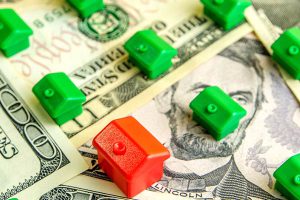Real Estate & Personal Finance: Can a Mortgage Lien Stop Me From Buying a Second Home?
Real Estate & Personal Finance: Can a Mortgage Lien Stop Me From Buying a Second Home?
Buying a home is usually “smart debt” because you’re building equity. The more equity you build, the more your personal wealth grows. But if you’re thinking about buying a second home, consider whether you’re making the right decision by looking at a variety of factors, such as whether you can afford the second house payment and which house you’re going to call your primary home.
Mortgage Loans
A mortgage has two elements: the note and the deed, explains Washington, D.C.-based senior mortgage banker Steven Pearson. “The note is your promise to make payments for a fixed number of years based on a specified interest rate.” The deed, Pearson says, is the security for the loan, otherwise known as the paperwork that identifies who owns the home. Pearson sums up the mortgage lending concept: “If you pay, you stay; if you don’t, you go.” Making mortgage payments as agreed means you can stay in your home. Your mortgage loan actually is a lien, because as long as you’re paying on a home loan, you’re not the sole owner. The entity that loaned you the money to buy your home still holds the deed.
Balancing Two House Payments
If you have high income and very low debt-to-income ratio, you might be able to negotiate buying another home even if you already have a mortgage lien. But generally speaking, buying a home is difficult when you’re already indebted on one mortgage note. Granted, mortgage debt can be smart debt, but too much of anything isn’t good. “Your income and debt-to-income ratio are important factors in buying one home, let alone two. But another reason a mortgage lien can stop you from buying a second home is deciding which one is going to be your primary residence,” states Pearson.
Decide Where You’re Living
Whether you can buy a home when you have a mortgage lien depends on your primary residence. For instance, if your primary residence is House A, where you have a mortgage lien, and you want to buy House B, you must decide which house will be your primary residence. If you decide to keep House A as your primary residence, it could be difficult to buy what is classified as a second home or investment property. By definition, Pearson says, “Your primary residence is where you spend at least six months out of the year.” In addition to your income and ability to take on more debt, mortgage lenders look at risk. Pearson adds, “If home buyers fall on tough times, forced to default on one property, it’s likely the primary residence is one that gets the homeowner’s priority. The second home or the investment property might rank lower on the list of the homeowner’s priorities when it comes to which mortgage payment to make first.”
Other Types of Liens
Tax liens and contractor liens are different; they don’t affect a mortgage, but they have to be resolved before the home is sold. For example, if you hire a home remodeler to finish your basement and don’t pay for the work, the contractor can put what’s called a “contractor’s lien” or “mechanic’s lien” on your home. If you were selling your home, you can’t have an outstanding tax lien or contractor lien against the house. But, one of these types of liens won’t necessarily prevent you from taking on another mortgage loan for a second home.
Quicken has made the material on this blog available for informational purposes only. Use of this website constitutes agreement to our Terms of Use and Privacy Policy. Quicken does not offer advisory or brokerage services, does not recommend the purchase or sale of any particular securities or other investments, and does not offer tax advice. For any such advice, please consult a professional.



